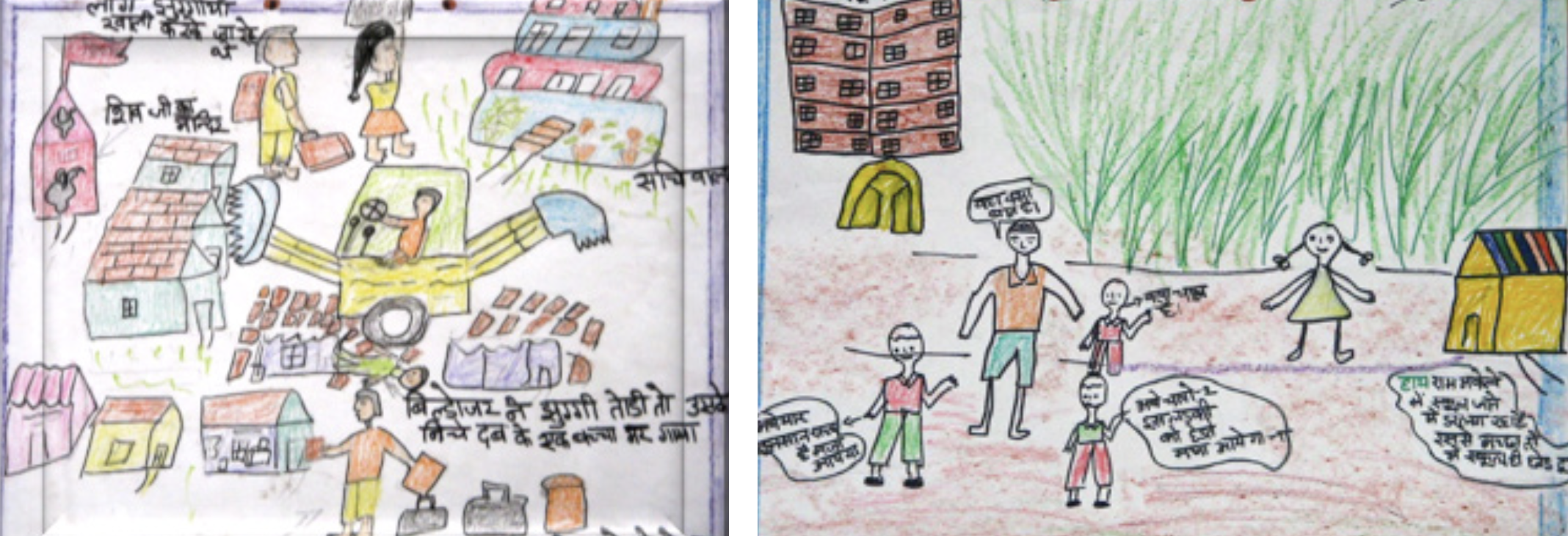Delhi, India, 2000-2005

In 2000, 529 families were evicted from an informal riverbank settlement called Gautampuri. A consortium of 42 local NGOs called Sanjha Manch, many of whom had previous experience of working with children in informal settlements, took action to respond to the eviction threat. Sanjha Manch leaders, in consultation with parents, decided to involve children and youths in the campaign to save Gautampuri. The power dynamic of the campaign initially was very much in favour of adults, the hierarchy being NGO, parent, and then children. When all else failed, the primary planners of the movement decided to bring in children to participate more fully.
Children participated in community workshops run by NGOs and drew out a plan to meet all the important city officials with the plea of letting them stay in Gautampuri. Different government officials agreed to meet with the representatives of the group after pressure from organised protests and media reporting.
Children’s involvement led to small negotiated victories, such as the issuing of bus passes to children to commute to their inner-city schools for the academic year. However, the campaign set the stage for a larger PIL in the Delhi High Court demanding a stay order on evictions. Children’s documentation of the movement and conditions of the resettlement site were admitted as evidence. Though the court ruled against the stay order, it ordered the state to first secure basic facilities at a new site before resettling people. This limited victory was a landmark in the history of forced evictions in Delhi, as for the first- time basic housing facilities were considered a state responsibility.
Children stayed involved as active citizens and played a significant role in greening their new neighbourhood in Bhalaswa. They formed children’s clubs that served as platforms for child-centred community development and citizenship.
Chatterjee, Sudeshna (2007).
“Children’s Role in Humanizing Forced Evictions and Resettlements in Delhi.” Children, Youth and Environments 17(1): 198-221
